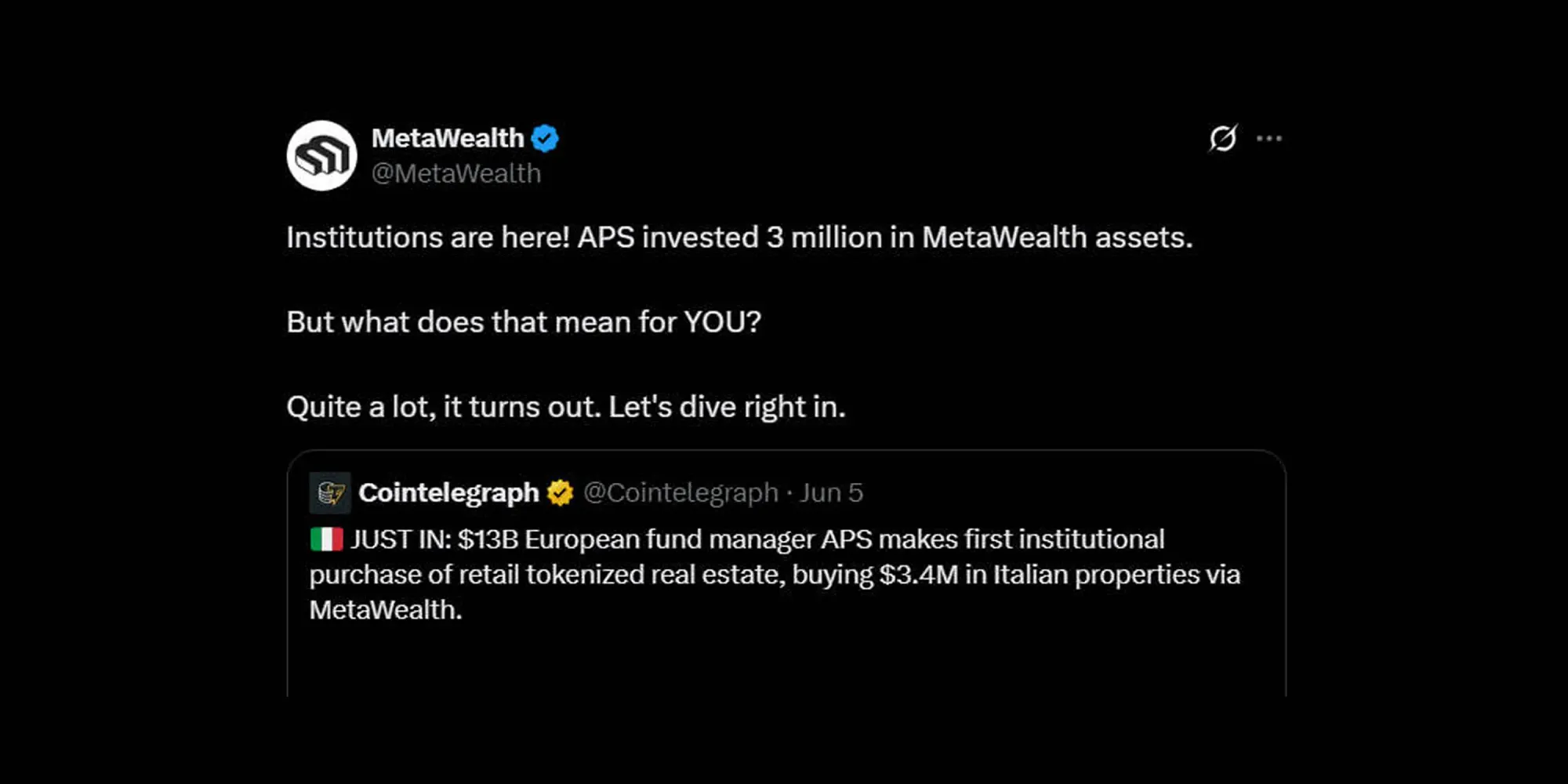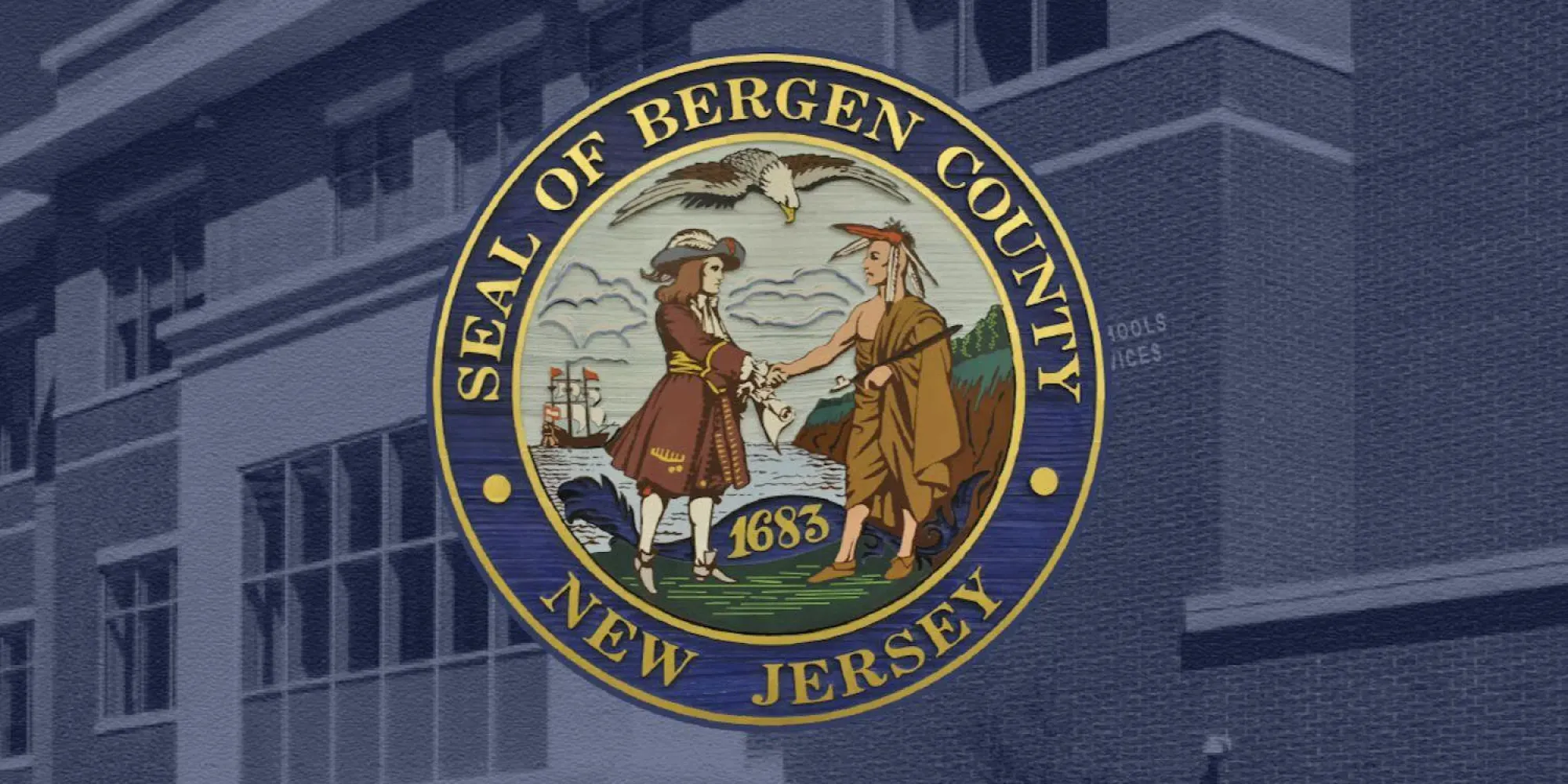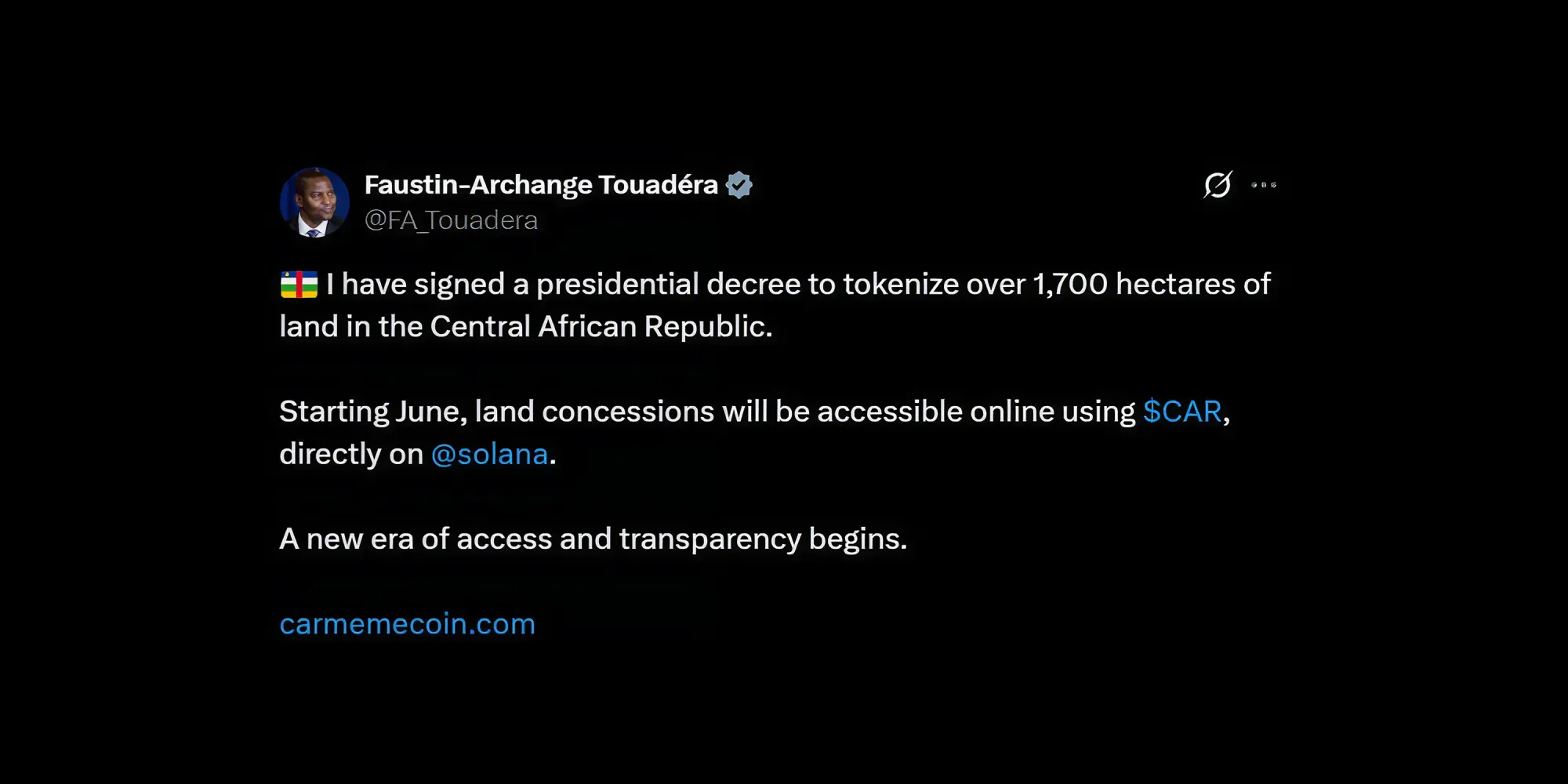Real Estate Tokenization Goes Global: Late May–June 2025 Highlights

Real estate tokenization — the conversion of property value or ownership into digital tokens on a blockchain — has surged from theory to practice in mid-2025. In the span of a few weeks, tokenized real estate made headlines across continents, with government agencies, startups, and institutional investors launching ambitious projects. From fractional real estate investing platforms that let everyday people buy tokenized property shares for a few dollars, to multi-billion-dollar deals and new laws enabling blockchain-based real estate investment, the period of late May through June 2025 has showcased the rapid globalization of this trend. Below we recap the most important news and developments worldwide in tokenization of real estate using blockchain technology — building on some of the key ideas we explored earlier in How Tokenization Is Reshaping Real Estate.
Middle East: Government-Backed Tokenization Initiatives

Dubai officials announced the region’s first licensed real estate tokenization platform, aiming to fractionalize property ownership via blockchain.
The Middle East saw landmark moves in real estate tokenization during this period. In Dubai, the government’s Land Department (DLD) — with support from the UAE’s central bank and regulators — launched its first tokenized real estate platform as part of an initiative to digitize 7% (about $16 billion) of the city’s property market by 2033. The new platform, called Prypco Mint, lets investors buy fractional ownership in Dubai properties using local currency, with a minimum investment of just 2,000 dirhams (~$540).
Initially open only to UAE ID holders transacting in dirhams, the project will expand globally and integrate more assets in later phases. Zand Digital Bank is onboard as a banking partner, and oversight is provided by the Dubai Virtual Assets Regulatory Authority (VARA) to ensure compliance and transparency. All property tokens are recorded on the XRP Ledger blockchain in sync with government records, illustrating how blockchain in real estate can modernize traditional property ledgers.
Dubai’s embrace of tokenization doesn’t stop there — the city has been on a tokenization campaign, exemplified by a recent deal where UAE developer MAG inked a $3 billion tokenization agreement to bring its luxury real estate projects on-chain via a regulated marketplace. In May, VARA also updated its guidelines to include provisions for tokenizing real-world assets, giving issuers and exchanges a clear path to launch and trade tokenized real estate assets under Dubai’s regulatory sandbox. In short, Dubai is positioning itself as a global hub for real estate asset tokenization, backed by high-profile initiatives and a supportive policy framework.

Neighboring Saudi Arabia also entered the fray with its first tokenized real estate project. In early June, Riyadh-based RAFAL Real Estate Development partnered with US-based blockchain firm droppRWA to pilot the Kingdom’s inaugural property tokenization transaction.
The project aims to introduce fractional ownership real estate investments to Saudi citizens for as little as a few riyals (literally under $5) — a dramatic lowering of the entry barrier in a market where full property ownership was traditionally out of reach for many. This democratized investment model aligns with Saudi’s Vision 2030 goals of financial inclusion and digital transformation. Backed by a government decree, the RAFAL pilot will conduct a feasibility study across the developer’s portfolio and launch a fully regulated proof-of-concept with live properties. The tokenized real estate platform will enable Saudis to co-own slices of high-value developments, and is expected to attract institutional foreign investors via compliant digital channel.
Officials tout it as a “paradigm shift” that redefines real estate ownership — for the first time, a young Saudi could invest in a premium skyscraper with just pocket change. In both Dubai and Saudi Arabia, the message is clear: the Middle East is leveraging tokenization to tokenize real estate at scale, marrying booming property markets with cutting-edge blockchain tech to unlock liquidity and broaden access.
Europe: Institutional Investors Embrace Tokenized Real Estate

MetaWealth’s platform offers tokenized stakes in European properties like this Rome development, attracting both retail and institutional investors.
Across Europe, tokenization in real estate gained serious momentum as institutional investors and new platforms jumped in. A notable milestone came in early June when pan-European fund manager APS (which oversees about €12 billion in assets) became the first major institution to invest in tokenized real estate side-by-side with retail buyers.
APS purchased €3 million worth of tokenized bonds tied to two residential properties in Rome via the MetaWealth platform — marking the first direct institutional purchase of tokenized property assets that are also available to the general public. The transactions were recorded on-chain for transparency and speed, exemplifying how security tokens for real estate can streamline deals. “Tokenisation represents a transformative shift in investing, offering increased liquidity and streamlined transactions while maintaining compliance and security,” noted an APS manager, highlighting the benefits of real estate tokenization from an institutional perspective.
MetaWealth, founded in 2023, is quickly emerging as one of the best real estate tokenization platforms in Europe. It has tokenized real estate assets across multiple countries — including Italy, Spain, Greece, and Romania — enabling fractional ownership and near-instant trading of property stakes on its blockchain marketplace. To date, the platform has facilitated over $50 million in tokenized property transactions, and MetaWealth now boasts users from 23 countries and ranks among the top 10 global real-world asset tokenization platforms by volume. This growth signals that European real estate tokenization companies are gaining traction by bridging traditional property markets with digital finance.
We previously analyzed similar real estate tokenization platforms and case studies in our article Global Leaders in Real Estate Tokenization.
Other European projects are also scaling up: for example, Blocksquare (a tokenization tech firm) and Vera Capital recently agreed to tokenize $1 billion of commercial real estate, a record-setting deal prior to the latest surge of activity. With a generally supportive regulatory environment — the EU’s MiCA framework and national sandboxes providing clarity for tokenized real estate projects — Europe is steadily embracing blockchain-based real estate investment. The presence of both nimble startups and large asset managers in this space suggests a maturing ecosystem. As one industry report noted, tokenizing property can unlock significant value by “opening real estate to a broader audience” and improving liquidity. The APS-MetaWealth deal in particular has been hailed as a trust signal that could draw more institutional capital into tokenized properties, accelerating adoption across European markets.
United States: Tokenizing Property Records and Pushing Regulatory Boundaries

Bergen County, NJ is uploading hundreds of thousands of property records onto a blockchain, in one of the largest real estate tokenization efforts ever.
In the United States, tokenization made headlines through a different angle: modernizing the real estate records system. In late May, authorities in Bergen County, New Jersey (the state’s most populous county) signed a five-year agreement with tech firm Balcony to transfer property ownership documents onto a distributed ledger. This initiative will see more than 370,000 land and title records from 70 municipalities tokenized and stored on the Avalanche blockchain, representing an estimated $240 billion in real estate value.
It is touted as the largest real estate tokenization project ever launched in the U.S., by value. Unlike tokenized real estate investment platforms that sell fractional shares, this project focuses on using blockchain to upgrade public records — essentially tokenizing property titles to create an immutable, transparent registry. The expected efficiency gains are dramatic: officials predict property transaction processing times in the county could drop by 90% once records move on-chain.
Removing paper-driven processes should also reduce fraud and errors, as each digital token on the ledger will represent a unique, verifiable property title that cannot be altered improperly. “Distributed ledger technology will simplify property data management…and make it more transparent and secure,” noted the county clerk, underscoring how digital asset real estate solutions can strengthen trust in public data. Notably, Balcony piloted a similar approach in Orange, Texas earlier: in that case, migrating titles to blockchain revealed that 63% of sold properties lacked proper occupancy certificates — an oversight that the city swiftly corrected, recovering $1 million in lost revenue.
Such outcomes illustrate the real estate tokenization case studies beyond investment: even municipal governments are finding value in tokenization to clean up records and optimize workflows. The New Jersey project is set to be a model for other regions on how tokenization of real assets like real estate can boost efficiency in the public sector.
On the regulation front, the U.S. has started to address the ecosystem that tokenization requires, though progress is incremental. In June, the Senate passed the GENIUS Act (S.1582) — a landmark bill establishing the first comprehensive federal framework for payment stablecoins. While centered on stablecoins, this legislation is seen as pivotal for the broader tokenized asset space: it “lays the foundation for … real-world asset (RWA) tokenization” by defining standards for digital asset issuers and custodians.
Essentially, the GENIUS Act signals that U.S. policymakers are willing to craft rules to let private enterprises issue compliant, secure tokens (not just governments via CBDCs) — a shift that could eventually extend to tokenized real estate markets. Industry stakeholders called it “the official start of the internet of value”, suggesting the U.S. wants to lead in a future where money and assets move on-chain as freely as email. However, current U.S. securities laws still limit broad public participation in investing in real estate tokens. For now, many tokenized property investments in the U.S. are offered under private securities exemptions, meaning only accredited investors can directly buy these tokens — a constraint that doesn’t exist in some other jurisdictions.
Even Robinhood’s crypto chief Johann Kerbrat remarked that a “new regulatory approach is needed to allow tokenization to flourish … at a federal level” so that the marketplace can be consistent and open to more investors. This gap — tokenization vs traditional real estate rules — is pushing U.S. entrepreneurs to lobby for clearer guidance. In the absence of bespoke laws, states and local entities are experimenting (as seen in New Jersey). The hope is that federal regulators will soon provide a pathway for tokenized real estate offerings to be more widely accessible, balancing innovation with investor protection. For now, the U.S. story is one of both big innovation (e.g. tokenized land registries) and cautious reform, as the country grapples with how to integrate blockchain-based real estate initiatives into a complex regulatory framework.
Africa and Emerging Markets: Democratizing Investment through Tokenization

The Central African Republic is tokenizing 1,700 hectares of land (presidential decree signing pictured) to attract investors with blockchain-based transparency.
Emerging markets, particularly in Africa, have also made significant strides in real estate tokenization projects during this period — often with a focus on financial inclusion. A headline development came from Nigeria, where blockchain startup Xend Finance launched Africa’s first tokenized investment platform for real-world assets in early June. Through Xend’s mobile app, users across Africa can invest in tokenized real estate assets or even fractional shares of big global stocks (like Apple or Tesla) using stablecoins. Impressively, the minimum investment is just $5, making this tokenized real estate marketplace accessible to populations in low-income countries who have traditionally been shut out of property investing. The platform, built on a dedicated blockchain called Asset Chain, eliminates the need for brokerage accounts and hefty fees — tokens are purchased and traded peer-to-peer with instant settlement in USDC/USDT, and ownership rights recorded on-chain.
Xend’s CEO Ugochukwu Aronu described the launch as a strategic step to give everyday Africans “access to global investment tools without intermediaries and barriers”. In essence, it functions as a tokenized real estate platform for fractional ownership of both local and international assets, blurring the lines between real estate and equities in a unified digital marketplace. The move reflects a broader trend in Africa, where young fintech companies are leveraging tokenization to deepen capital markets. (Notably, Kenya and Nigeria have been exploring tokenized bonds and property funds to tap retail savers.) By lowering entry costs and using familiar mobile money channels, these platforms aim to let individuals buy tokenized real estate in portions that suit their budget — potentially unlocking vast pools of new investors across the continent.
At the same time, African governments are experimenting with tokenization on a national scale. The Central African Republic (CAR) grabbed attention by signing a presidential decree to tokenize over 1,700 hectares (~4,200 acres) of state-owned land. Starting in June 2025, these land parcels (located near the capital, Bangui) will be available for purchase or lease in tokenized form via an online platform, with the country’s own digital currency (CAR, built on Solana) as the payment method. “A new era of access and transparency begins,” President Faustin-Archange Touadéra proclaimed, highlighting that the project’s main goals are to spur development of the CAR’s mining sector and attract foreign investment through tokenization.
This initiative builds on the CAR’s prior ventures in crypto (such as the Sango Coin) and a 2023 law allowing tokenization of natural resources. By turning land rights (potentially for gold and diamond mining) into digital tokens, the CAR hopes to raise capital and ensure any transactions are transparent and traceable. It’s one of the first examples of a sovereign nation directly tokenizing real assets (land/resources) for public sale. Elsewhere in Africa, similar ideas are taking shape: for instance, Lagos State in Nigeria has announced plans to tokenize real estate to raise funds and enable small investors to tokenize property ownership in a city of 21 million people. And in Kenya, regulators have been studying how tokenized securities could deepen the Nairobi market.
These emerging market case studies indicate that tokenization of real estate isn’t only a rich-country phenomenon. In regions where property markets are traditionally illiquid and hard to access, tokenization is seen as a leapfrog technology — a way to invest in tokenized real estate with minimal capital, create new financing avenues for development, and bring integrity to land governance. While challenges remain (technology infrastructure, regulatory clarity, and educating investors), the momentum from the CAR to Nigeria suggests a growing appetite for blockchain-based real estate solutions across the Global South.
Key Trends: Fractionalization, Market Leaders, and Evolving Regulation

The flurry of activity in late May and June 2025 reveals several key trends shaping the tokenized real estate landscape:
Fractional Ownership Goes Mainstream
A core promise of real estate tokenization — the ability to tokenize real estate into bite-sized shares — is being realized at scale. We’ve seen minimum investments plummet to levels unimaginable in traditional property deals. Dubai’s new platform allows buying in with AED 2,000 ($550); Saudi’s pilot will let citizens invest with “single-digit riyals”; and Xend’s app in Africa sets the bar at $5.
By dividing expensive properties into thousands of digital tokens, fractional real estate investing is no longer a niche concept but is becoming a standard offering. This democratization greatly expands the pool of investors — instead of needing tens of thousands of dollars to buy an apartment or land, individuals can now acquire tokenized property investments with pocket change. The result is a more inclusive market where locals and foreigners alike can invest in tokenized real estate and build diversified property portfolios across borders.
Platforms and Companies on the Rise
A number of real estate tokenization companies and platforms have emerged as leaders in this burgeoning market, each carving out a niche. In the Middle East, government-backed platforms like Dubai’s Prypco Mint have a first-mover advantage. In Europe, startups such as MetaWealth are scaling rapidly, offering a tokenized real estate marketplace for pan-European assets (and attracting institutional partners in the process).
Globally, tokenized real estate platforms like Binaryx — founded in Ukraine and expanding internationally — have transitioned from pilot to commercial scale, launching 25+ tokenized properties and processing over $4 million in investments to date. These platforms compete to provide the best real estate tokenization platform experience, emphasizing legal compliance, user-friendly interfaces, and secondary trading liquidity. We’re also seeing specialized efforts like Africa’s Xend Finance focusing on emerging market needs, and U.S. firms like Balcony working with public sectors. In effect, a diverse ecosystem of tokenized real estate projects is taking shape, ranging from start-ups to established financial institutions. Each is innovating on features like instant dividend payouts, DAO-based property governance, or integration with DeFi — all aimed at making tokenizing property simpler and more attractive. This healthy competition is pushing the industry forward and improving standards.
Institutional Validation and Liquidity
2025 may be remembered as the year institutions seriously embraced tokenized real estate investment. The participation of a $13 billion fund like APS in a tokenized offering is a watershed moment, bringing credibility and deeper liquidity to the sector. Institutional investors provide larger capital inflows and due diligence, which can reassure smaller investors and spur others to follow.
Their interest is driven by the potential for liquidity in tokenized assets (traditionally, real estate is highly illiquid) and the efficiency of blockchain settlements. As APS’s team noted, tokens can maintain compliance and security while enabling faster trades — a combination that appeals to funds seeking flexibility. Beyond APS, we have Wall Street giants signaling interest: BlackRock’s CEO Larry Fink has publicly called tokenization “the next generation for markets”, and Citi describes it as “the future of assets”. Such endorsements suggest that investing in real estate tokens and other RWAs will increasingly be part of mainstream portfolio strategies.
Higher liquidity is already evident on some platforms’ secondary markets, where investors can trade tokenized property shares in seconds rather than waiting months to sell a house. Meanwhile, early adopters have started to realize tokenized investment returns. For example, one tokenized property fund reported that an investor earned about +19% appreciation in 11 months on a Bali villa token, with monthly rental dividends paid out programmatically. These real-world performance figures further validate the model. The entry of institutional market-makers and the demonstration of solid returns both help dispel the notion that tokenized real estate is merely experimental — instead, it’s proving to be a viable, even superior, approach to property investing in some cases.
Regulatory Momentum Worldwide
Finally, the regulatory environment for real estate tokenization is (slowly) catching up, which is crucial for long-term growth. Jurisdictions around the globe are acknowledging the trend and crafting rules — we’re seeing tokenization regulations worldwide begin to take shape. Dubai’s VARA, for instance, has explicitly integrated real estate tokens into its virtual asset regulatory framework, creating a sandbox for compliant offerings.
In Asia, Hong Kong’s passage of a new Stablecoin Ordinance in May is expected to “anchor the multi-trillion-dollar tokenization of real-world assets” by providing trusted payment rails and clarity for issuers. Japan and Singapore have also been active in exploring security token offerings within regulatory sandboxes. Europe’s comprehensive crypto asset regulation (MiCA) and pilot regimes for tokenized securities provide a relatively clear path for real estate tokenization platforms to operate across EU member states. Even smaller countries like those in the Middle East and Africa are developing bespoke laws (e.g. CAR’s 2023 tokenization law for resources) or leveraging existing fintech frameworks to accommodate property tokens.
In the United States, although full clarity for tokenized real estate is lagging, steps like the GENIUS Act indicate movement at the federal level towards acknowledging and supervising tokenized money and assets. Industry participants are actively engaging with regulators to address the risks of tokenizing property — from ensuring investor protection and KYC/AML compliance to setting standards for smart contracts and custody. The consensus is that modernizing regulations is pivotal: as one executive remarked, “a new regulatory approach is needed … at a federal level to provide consistency”. Where regulators have acted, it’s already catalyzing growth (for example, Dubai’s clear rules have attracted many tokenized real estate companies to launch there). Where they haven’t, activity is either constrained or moving to friendlier jurisdictions. We anticipate a continued dialogue between the blockchain industry and governments to refine legal frameworks, with some jurisdictions likely to emerge as global hubs for blockchain-based real estate investment due to progressive policies.
Overall
The advantages of tokenization vs traditional real estate are becoming increasingly evident in these recent developments. Transactions that once took weeks and stacks of paperwork can now settle in minutes on digital platforms, as seen when a county in the U.S. projects a 90% reduction in processing time using tokens for titles.
The liquidity in tokenized assets allows investors to rebalance or exit positions far more easily than in the brick-and-mortar world, addressing a longstanding pain point of property investment. Perhaps most importantly, a new class of investors can participate in tokenized property investments with minimal funds, benefiting from real estate’s returns without the traditional barriers. Indeed, the early tokenized real estate examples from this period show tangible results: government coffers recovering lost revenue, developers raising fresh capital more efficiently, and small investors earning passive income from properties half a world away. Of course, this is not to say tokenization is without challenges — market education, smart contract security, and regulatory harmonization are all still works in progress. Yet, the trajectory from late May to June 2025 suggests that many of those challenges are being met. The benefits of real estate tokenization — efficiency, transparency, global reach, and accessibility — are driving a wave of innovation that’s reshaping how we think about property rights and investment.
The market outlook is undeniably optimistic. Analysts are now sizing the opportunity in the trillions: for example, Boston Consulting Group projects that tokenized assets (including real estate, stocks, bonds, etc.) could unlock about $23 trillion in value by 2034. Deloitte foresees the tokenization market size for real estate alone reaching up to $4 trillion by 2035. While estimates vary, the common theme is that we’re only at the beginning of a seismic shift. As 2025 continues, the trends seen in these few weeks — major launches, first-of-their-kind deals, supportive laws, and expanding platforms — are likely to accelerate. In summary, the end of Q2 2025 has demonstrated that tokenized real estate is no longer a far-fetched idea but a fast-evolving reality across the globe.
From a luxury tokenized real estate platform in Dubai to a grassroots land tokenization program in Africa, the movement is as geographically diverse as it is dynamic. Stakeholders who stay informed and engaged with these developments will be well-positioned to benefit from fractional ownership, digital liquidity, and new investment models that are revolutionizing the property sector.
Stay informed.
Subscribe to blog.tokenizer.estate for expert insights, real-world case studies, and the latest updates in real estate tokenization 🏠

